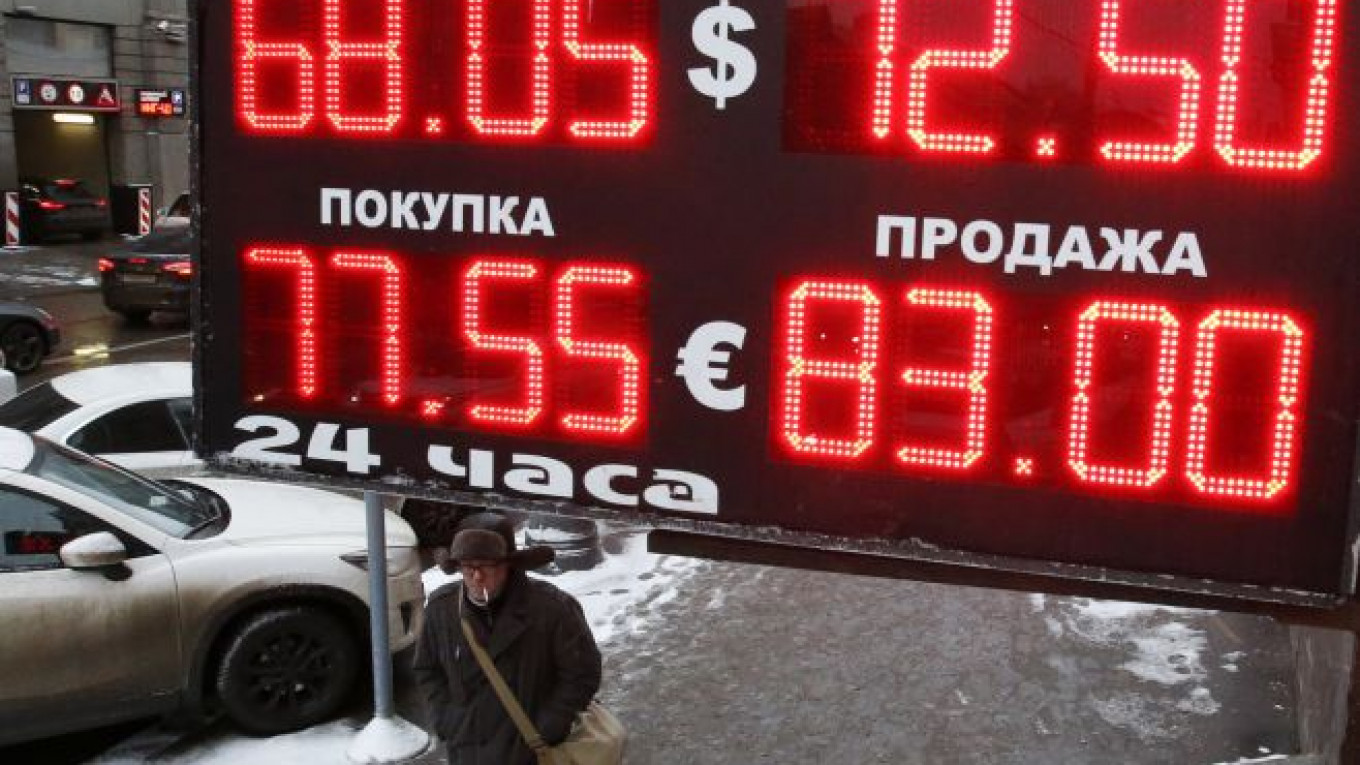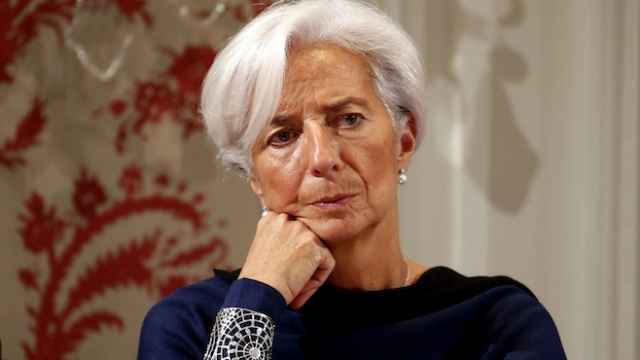Russia's economy ministry said on Saturday it expected gross domestic product to fall 3 percent this year, more optimistic than many analysts' forecasts of a 4-5 percent drop.
The economy has been hit by a sharp fall in oil prices and by sanctions imposed on Moscow for its role in the Ukraine crisis, leaving Russia facing its first year of recession since 2009 in the wake of the global financial crisis.
The new growth prediction was contained in macroeconomic forecasts used by the government for budgetary planning. The economy ministry last revised these in December, when it expected that gross domestic product would fall by 0.8 percent this year with average oil price of $80 per barrel.
In its new forecasts, it now assumes an average oil price of $50 per barrel this year, similar to its current levels. Oil and gas account for about two-thirds of Russia's exports and half of federal budget revenues, making the oil price a key variable.
Economy Minister Alexei Ulyukayev told Russian news agencies that the oil price forecast was "as conservative as possible," compared with more upbeat consensus forecasts, state news agency Interfax reported.
Under the new forecasts, inflation would not ease this year and would be at 12 percent by the end of 2015, compared to 11.4 in 2014. Capital investment was likely to fall by 13 percent this year and retail sales by 8 percent, Ulyukayev said.
Net capital outflows, spurred by a falling ruble and increased tension between Moscow and the West over Ukraine, are projected to reach $115 billion.
Despite the conservative oil price forecast, the ministry's projection of a 3 percent contraction was more optimistic than analysts polled in late January by Reuters who saw the Russian economy shrinking by 4.2 percent this year.
Moody's rating agency said earlier this month that GDP might fall by as much as 5.5. percent. Analysts at Danske in Copenhagen said in a recent note that GDP may contract by 8 percent.
The Russian Central Bank predicted in December that the economy would contract by 4.6 percent in 2015 assuming an oil price of $60 per barrel.
The revised forecasts come a day after the Central Bank cut its interest rate by 2 percentage points to 15 percent, a surprise move that signaled its growing concern with weak economic growth as opposed to high inflation.
The bank also said on Friday that it expected the economy to shrink by 3.2 percent in the first half of 2015, and for inflation to stay in double digits until next year.
A Message from The Moscow Times:
Dear readers,
We are facing unprecedented challenges. Russia's Prosecutor General's Office has designated The Moscow Times as an "undesirable" organization, criminalizing our work and putting our staff at risk of prosecution. This follows our earlier unjust labeling as a "foreign agent."
These actions are direct attempts to silence independent journalism in Russia. The authorities claim our work "discredits the decisions of the Russian leadership." We see things differently: we strive to provide accurate, unbiased reporting on Russia.
We, the journalists of The Moscow Times, refuse to be silenced. But to continue our work, we need your help.
Your support, no matter how small, makes a world of difference. If you can, please support us monthly starting from just $2. It's quick to set up, and every contribution makes a significant impact.
By supporting The Moscow Times, you're defending open, independent journalism in the face of repression. Thank you for standing with us.
Remind me later.






